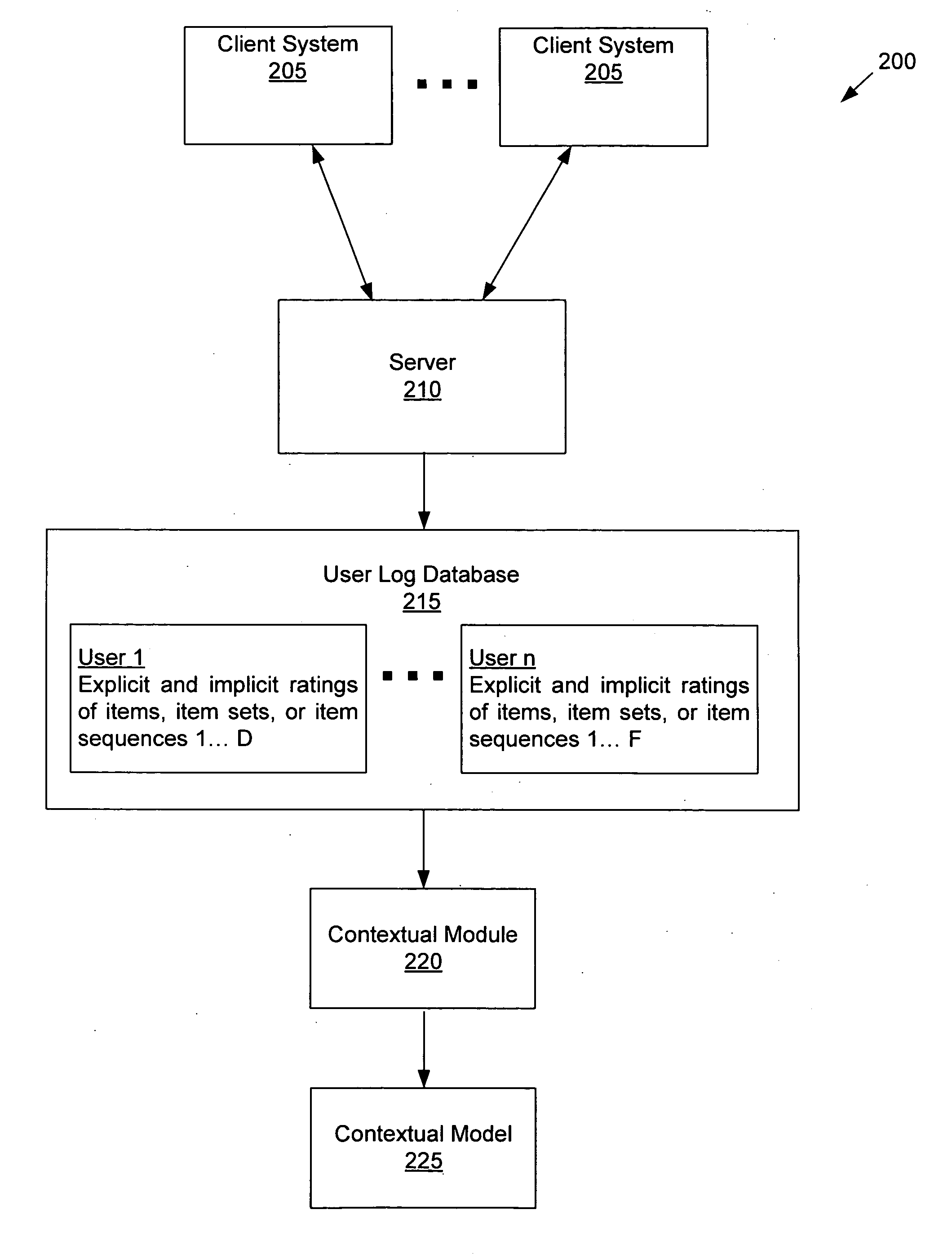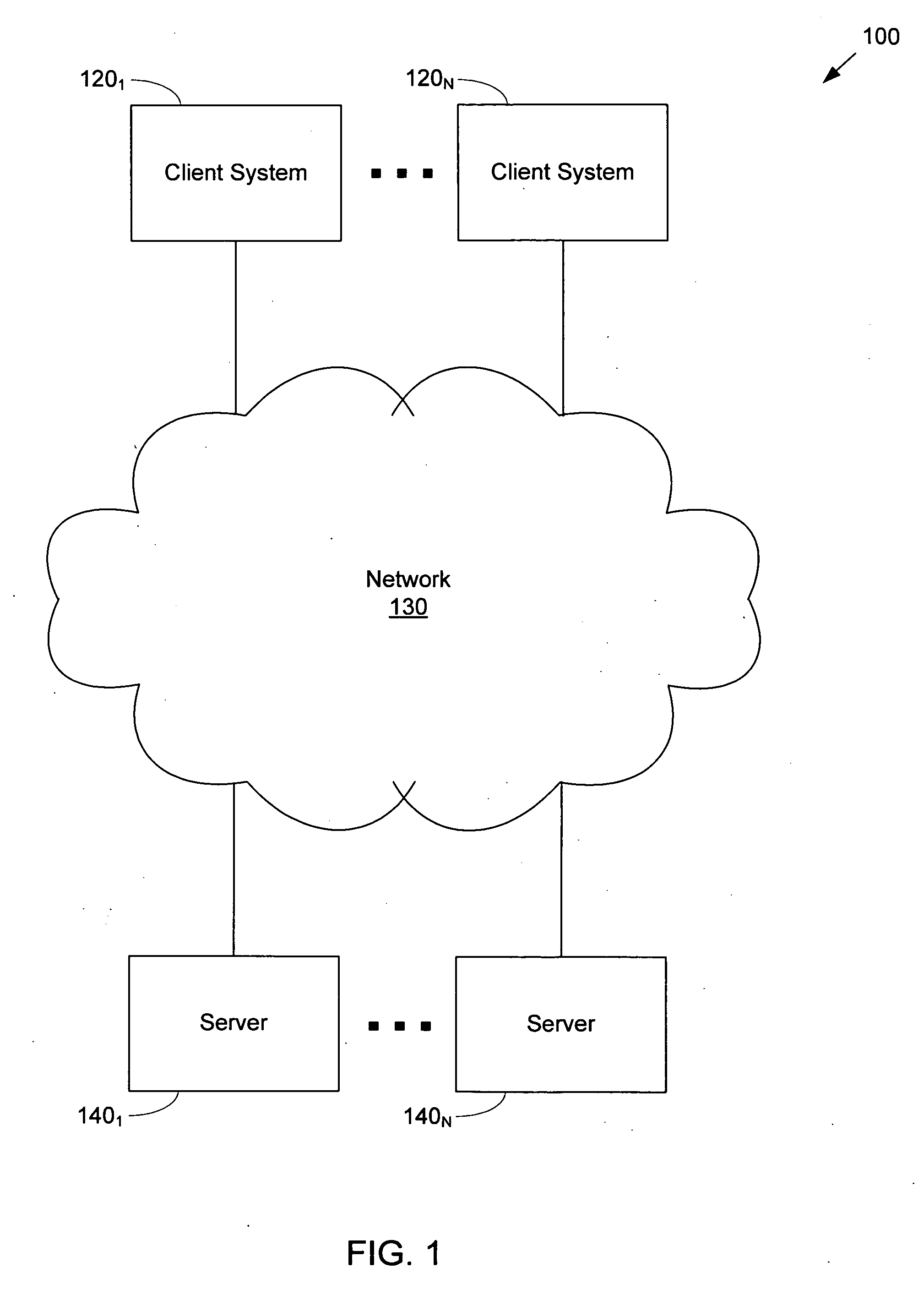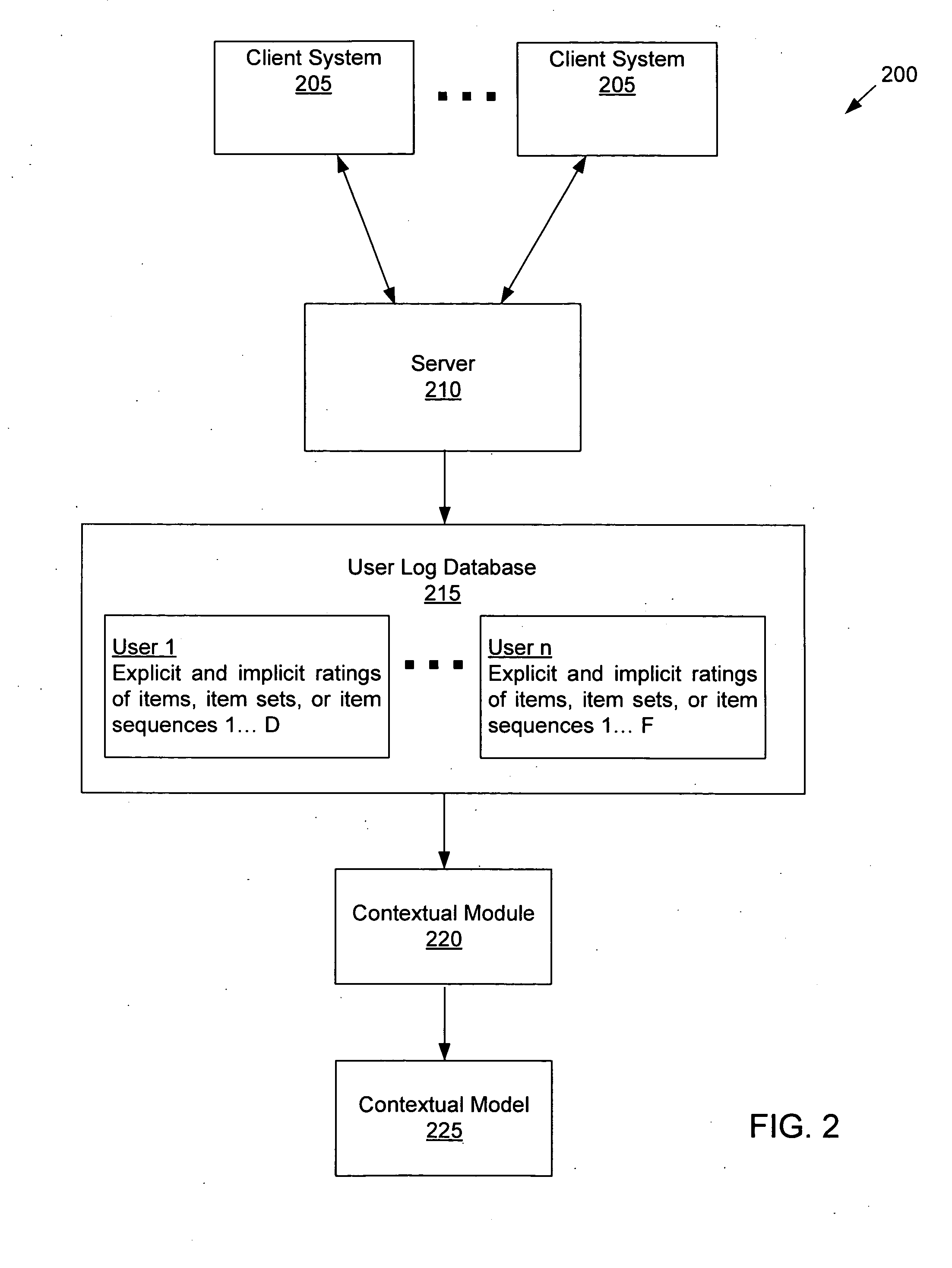Collaborative-filtering contextual model based on explicit and implicit ratings for recommending items
a contextual model and collaborative filtering technology, applied in the direction of computing, instruments, buying/selling/leasing transactions, etc., can solve the problems of not being able to view many items, system based on collaborative filtering, not considering all available online information in producing recommended items, and large number of available items
- Summary
- Abstract
- Description
- Claims
- Application Information
AI Technical Summary
Benefits of technology
Problems solved by technology
Method used
Image
Examples
Embodiment Construction
[0020]In the following description, numerous details are set forth for purpose of explanation. However, one of ordinary skill in the art will realize that the invention may be practiced without the use of these specific details. In other instances, well-known structures and devices are shown in block diagram form in order not to obscure the description of the invention with unnecessary detail.
[0021]In the discussion below, Section I provides a general description of a network environment in which some embodiments operate. Section II describes a method for creating a contextual model based on preference information (ratings) of items collected from network users. Section III describes a method for creating a content model based on metadata information of items. Section IV describes a method for implementing the contextual and content models for recommending one or more items to a current network user. Section V describes a recommendation system having an item set or item sequence fra...
PUM
 Login to View More
Login to View More Abstract
Description
Claims
Application Information
 Login to View More
Login to View More - R&D
- Intellectual Property
- Life Sciences
- Materials
- Tech Scout
- Unparalleled Data Quality
- Higher Quality Content
- 60% Fewer Hallucinations
Browse by: Latest US Patents, China's latest patents, Technical Efficacy Thesaurus, Application Domain, Technology Topic, Popular Technical Reports.
© 2025 PatSnap. All rights reserved.Legal|Privacy policy|Modern Slavery Act Transparency Statement|Sitemap|About US| Contact US: help@patsnap.com



